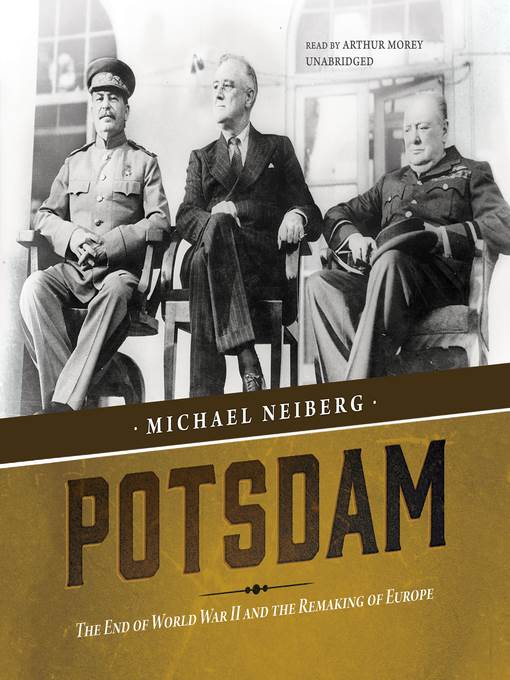
Potsdam
The End of World War II and the Remaking of Europe
- اطلاعات
- نقد و بررسی
- دیدگاه کاربران
نقد و بررسی

Arthur Morey gives a solid narration of this account of the post V-E Day conference that shaped Eastern Europe and set in place the course of the Cold War. The Potsdam Conference of 1945 is compared with the Versailles Conference of 1919, which provides some interesting contrasts and parallels. However, this reviewer thinks that the author is too generous in describing Stalin's motivations. Nonetheless, this well-written account is an appealing blend of academic and popular style, and Morey's voice is a good match. His baritone voice is pleasing to the ear, steady in delivery, and subtly expressive. M.T.F. © AudioFile 2015, Portland, Maine

March 2, 2015
In July 1945, three Allied leaders—Harry S. Truman, Joseph Stalin, and Winston Churchill—met at the Potsdam Conference in Germany to establish the structure of a postwar world order. Many observers disliked the outcome, but Neiberg (The Blood of Free Men), professor of history at the U.S. Army War College, explains why he approves of it in this thoughtful, mildly controversial account. Truman, vice president until F.D.R.’s death three months earlier, knew little of world affairs but proved a quick study. Churchill, voted out of office before the conference ended, “baffled and worried his own cabinet officers.” While acknowledging “Stalin’s brutality,” Neiberg sympathizes with him; aware that Russia did most of the fighting and suffering, the Soviet leader came to Potsdam “not to make deals but to settle scores.” In the end, Stalin got most of what he wanted: hegemony over Eastern Europe, reparations, and generous territorial gains in exchange for attacking Japan, as the war in the Pacific continued. Neiberg points out that WWII did not lead to a third world war, and that Stalin’s concentration on politics over economics at the conference eventually doomed the Soviet Union. Neiberg’s insightful history makes a case that Potsdam worked much better than Versailles had in 1919. Photos. Agent: Geri Thoma, Writers House




دیدگاه کاربران